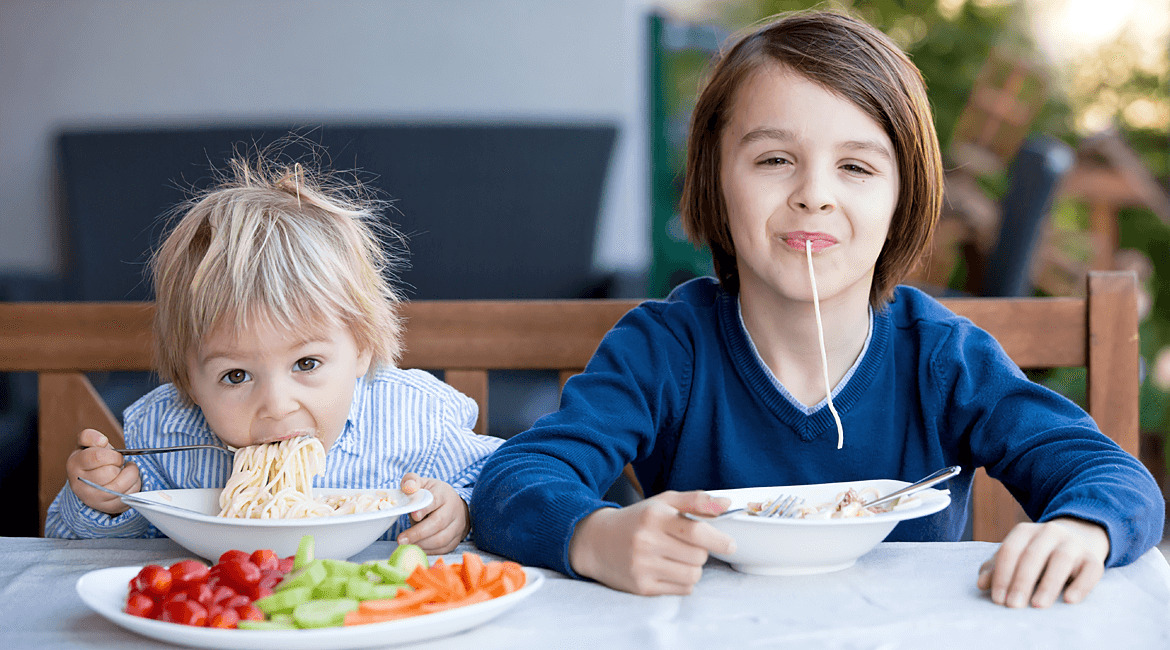Like many parents, there are periods you are worried about your child’s appetite because their eating patterns are usually unpredictable.
Although this is normal, it can feel alarming when your child hardly eats at mealtimes. Or when they regularly eat a large portion of food.
A healthy and balanced diet is vital to keep younger children’s bodies at optimal performance.
Hence, these constantly changing appetites can leave any parent feeling stressed and anxious.
The reality is that kids’ appetites are expected to change till they attain adulthood to aid their growing bodies to get what they need to function correctly.
If appetite changes are expected, why are parents trying to control their growing children’s food intake?
Helpful Tips That Aid Improve Children’s Appetites
Most children are picky eaters, making it hard for their bodies to get the required nutrient needed during growth and development.
How do you get your child to eat healthy, especially if they have a low appetite and tend to skip their meals?
Here are some tips to improve your child’s appetite and make them cultivate better-eating habits.
1. Do Not Skip Their Breakfast
Eating breakfast is an absolute must for children as it boosts their body for the day ahead.
Making breakfast a mandatory meal for kids not only kicks off their metabolism but also increases their appetite.
Research shows that at least one in eight children is anemic. Hence, include foods rich in Vitamin C in their breakfast to aid their body’s food absorption.
2. Explore Fun Mealtime Ideas
Many children with a reduced appetite have not had positive experiences with food. That is why allowing them to interact with food is beneficial.
As a parent, plan fun activities during mealtimes so that your kid looks forward to their food. It may pique their interest and also help them get used to new foods.
Fun activities vary from simple plans like storytelling or setting up cooking games for your child to assist.
Even drawing and painting different food types is also a great way to encourage your child to eat.
3. Eating Every Two Hours
Children are active people and need enough food to get the energy for playing, studying, and having fun during the day.
If your child is hardly hungry or never willing to eat, it helps to feed them in tiny portions every two hours.
Frequent small meals stimulate their appetite and, in turn, builds their body’s metabolism.
Children start associating stress with food when pressured to eat a lot and offer them light snacks such as nuts and dry fruits daily between meals.
4. Change the Menu
It is best to discourage oily and heavy meals to toddlers and children.
Instead, serve vitamin-B-rich fortified foods, zinc supplements, and foods enriched with iron, folic acid, and essential nutrients.
Colors also motivate children to eat. So, include colorful vegetables and fruit salads in their food regime.
With this tip, you can get your child motivated to eat healthily and also eat more.
5. Reduced Water and Milk Intake
To enable your child to finish their meal, do not allow them to drink large water quantities. You can offer them water 30 minutes before their meal.
Although milk is essential, it cannot provide the required nutrients for a child’s growing needs.
Dairy products fill up children’s tummy, which in turn reduces their appetite for healthy food.
6. Set Good Examples
Children are great observers and love replicating habits from their parents and family. Thus, it becomes vital to improve your food habits to lead by example.
Try to serve dishes they enjoy and eat along with them.
They would look forward to each meal, have an increased appetite, and accept healthy choices more readily if they observe their parents do so.
7. Scheduled Meal Times
A pre-fixed meal schedule should be encouraged in your growing child.
A defined and disciplined food schedule sets hunger cues in children’s bodies, thereby maintaining their appetites.
Reasons Why Children Have Low Appetites
It is essential to understand why some children have a poor appetite. It seems unnatural that most children are not picky eaters; they have no zeal to eat.
Children having a poor appetite usually happens for a reason. Do you want to know the possible cause of a reduced appetite in your child?
To end that stressful worry, below are three different reasons.

1. Snacking Between Meals
Children will only eat enough to ward off their hunger signals, so they will hardly ever get hungry if they have access to food throughout the day.
If your child is used to frequent snack consumption, they do not learn to listen to these signals, so it can take longer to know they are hungry.
Hence, the result of snacking and drinking fluids between meals is kids not finishing the food served to them and a loss of appetite.
2. Difficulty Eating
Sometimes it is not a problem with appetite, but your child has a problem with chewing food.
When kids have sores on their tongues, are sensitive to textures, or have low oral motor skills, eating is usually painful and challenging.
That pain sets off your child’s adrenaline, and their body’s way of protecting itself is to shut off their appetite, so they don’t get hungry.
In this scenario, it is critical to ensure mealtimes are a positive and relaxing experience for the child.
3. Illness, Drugs, and Stress
If your child is suffering from food allergies, stomach flu, acid reflux, diarrhea, or a type of digestive issue, they may not have an appetite for food.
Also, arguments with siblings, bullying, and fights stress children, affecting their interest in eating.
If your child is on prescription drugs, these drugs’ side effects can be detrimental to their appetites.
Conclusion
During the toddler phase, pre-puberty and preadolescence, it is common to see appetite fluctuations in children due to growth changes.
Of course, sometimes changes in appetites can be a sign of something serious.
Contact your pediatrician if your child shows abdominal pain symptoms, decreased energy, vomiting, facial swelling, or a rash after eating.


